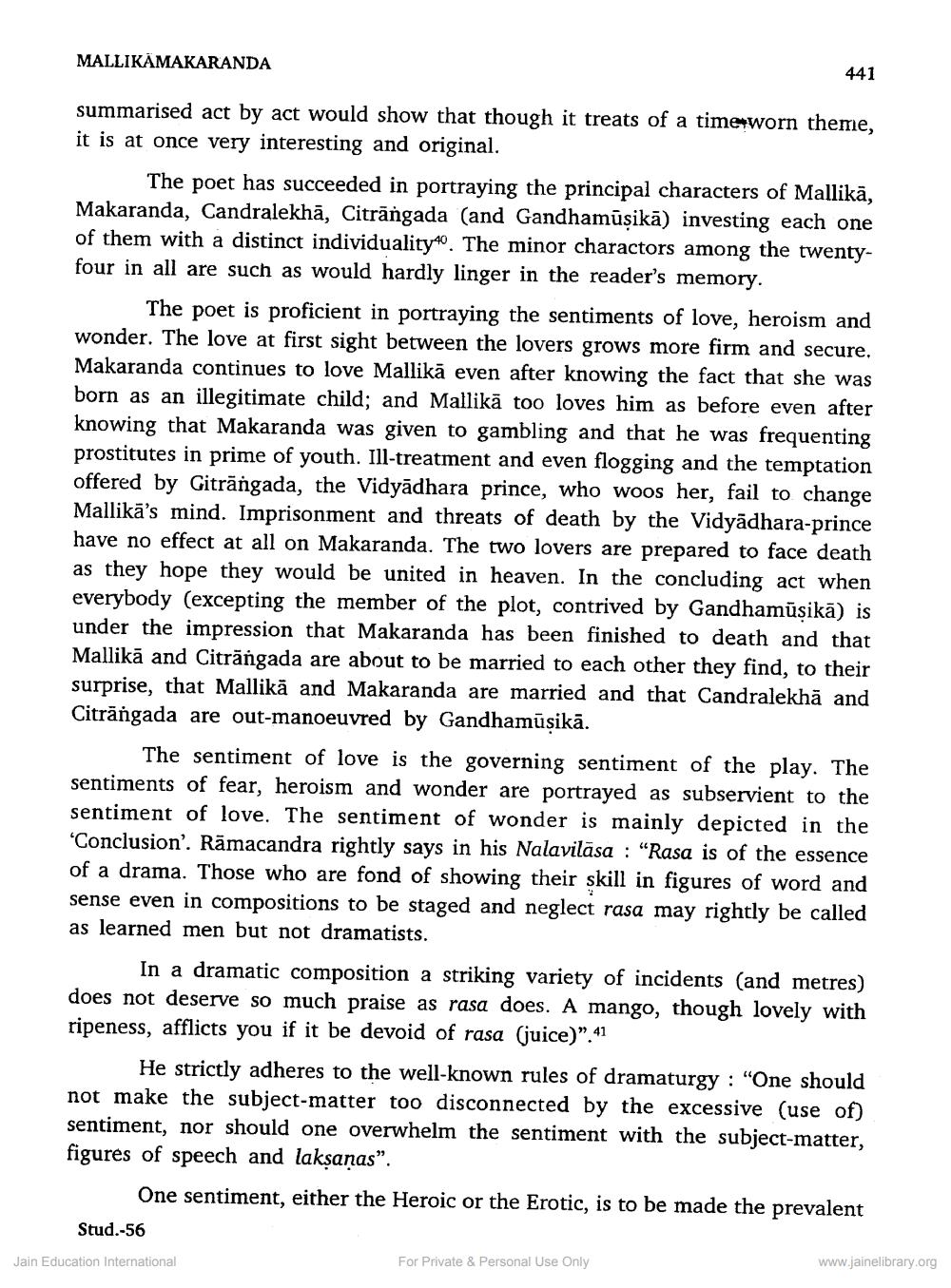________________ MALLIKAMAKARANDA 441 summarised act by act would show that though it treats of a time worn theme, it is at once very interesting and original. The poet has succeeded in portraying the principal characters of Mallika, Makaranda, Candralekha, Citrangada (and Gandhamusika) investing each one of them with a distinct individuality4o. The minor charactors among the twentyfour in all are such as would hardly linger in the reader's memory. The poet is proficient in portraying the sentiments of love, heroism and wonder. The love at first sight between the lovers grows more firm and secure, Makaranda continues to love Mallika even after knowing the fact that she was born as an illegitimate child; and Mallika too loves him as before even after knowing that Makaranda was given to gambling and that he was frequenting prostitutes in prime of youth. Ill-treatment and even flogging and the temptation offered by Gitrangada, the Vidyadhara prince, who woos her, fail to change Mallika's mind. Imprisonment and threats of death by the Vidyadhara-prince have no effect at all on Makaranda. The two lovers are prepared to face death as they hope they would be united in heaven. In the concluding act when everybody (excepting the member of the plot, contrived by Gandhamusika) is under the impression that Makaranda has been finished to death and that Mallika and Citrangada are about to be married to each other they find, to their surprise, that Mallika and Makaranda are married and that Candralekha and Citrangada are out-manoeuvred by Gandhamusika. The sentiment of love is the governing sentiment of the play. The sentiments of fear, heroism and wonder are portrayed as subservient to the sentiment of love. The sentiment of wonder is mainly depicted in the 'Conclusion'. Ramacandra rightly says in his Nalavilasa : "Rasa is of the essence of a drama. Those who are fond of showing their skill in figures of word and sense even in compositions to be staged and neglect rasa may rightly be called as learned men but not dramatists. In a dramatic composition a striking variety of incidents (and metres) does not deserve so much praise as rasa does. A mango, though lovely with ripeness, afflicts you if it be devoid of rasa (juice)". 41 He strictly adheres to the well-known rules of dramaturgy : "One should not make the subject-matter too disconnected by the excessive (use of) sentiment, nor should one overwhelm the sentiment with the subject-matter, figures of speech and laksanas". One sentiment, either the Heroic or the Erotic, is to be made the prevalent Stud.-56 For Private & Personal Use Only www.jainelibrary.org Jain Education International




